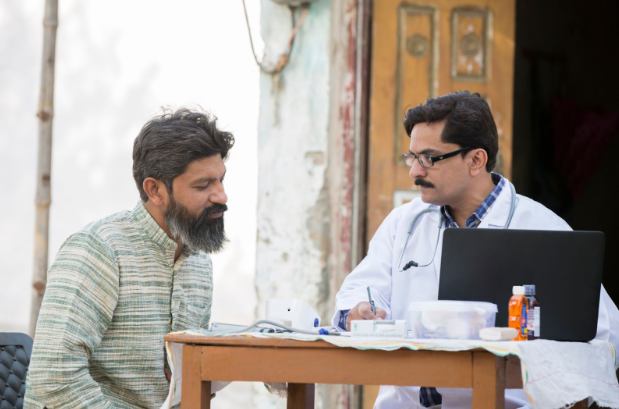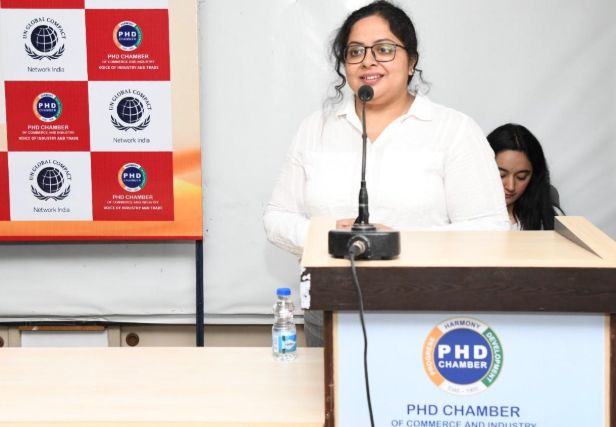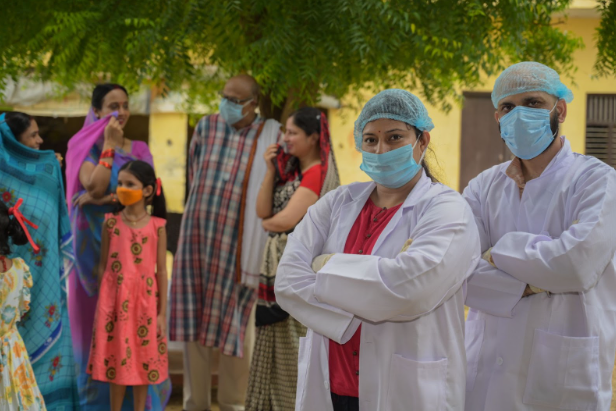Lives at Stake in Battle Against Corruption in India's Healthcare Sector
Read more

In healthcare, corruption can be a matter of life and death.
Facilities crumble when repair funds are embezzled, useless fake drugs flood the market when corrupt regulators manage supply and doctors who extort under-the-table payments from patients may fail to provide needed care.
In India, non-transparency and unethical practices are persistent challenges in the healthcare sector, where corruption can degrade services and force providers and professionals into a legal morass.
In response, Global Compact Network India launched an Anti-Corruption Collective Action (ACCA) initiative, bringing together pharmaceutical companies, other businesses and healthcare experts along with the Ministry of Health & Family Welfare, the Government of India and the United Nations Office on Drugs and Crime (UNODC).
‘’Without a concerted effort to curb corruption in both the public and private sectors, merely increasing access to healthcare for the country’s neediest will fail to solve many of the fundamental problems that plague the system, from wasteful and unethical prescribing practices to higher-than-necessary costs and astronomical levels of institutional distrust,’’ said Ratnesh Jha, Executive Director of Global Compact Network India.

Global Compact Network India launched an Anti-Corruption Collective Action initiative, bringing together pharmaceutical companies, healthcare experts, the Ministry of Health & Family Welfare, Government of India and the United Nations Office on Drugs and Crime.
The initiative’s workshops and training aim to integrate the concept of Collective Action to strengthen transparency, accountability, and value-based healthcare.
It published the Best Practices Compendium on Anti-Corruption: “Strengthening Transparency, Accountability and Value-based Healthcare in India, a guide for promoting ethical business practices in organizations and companies by addressing corruption challenges at different levels.
The compendium features 11 case studies focusing on best practices in fighting corruption and promoting ethical business practices. Hypothetical scenarios are drawn from the pharmaceutical and biopharmaceutical sector, hospitals, government health agencies and elsewhere.
"Corruption in healthcare isn't just a legal issue — it's a betrayal of trust in a sector seen as sacred,” said Jyoti Shekar, Managing Partner at Jus Diligens, a legal and compliance consulting firm.
Using the guide, she added, Jus Diligens has partnered with DB Tech Private Ltd. for WhistleSentinel, a whistleblower IT solution.
“One of the most important identifiers of corruption and malpractices are the employees,” she said. “One must have ethical values at every level of the organization."

Jyoti Shekar, managing partner at Jus Diligens, has used the Best Practices Compendium.
At Global Manufacturing Corp., which makes industrial vibrators, an employee in the operations department who chose not to be identified said before the anonymous reporting system was established, the worker was hesitant to report irregularities, fearing backlash from senior management.
With the anonymous WhistleSentinel reporting system in place, “I could file my report in detail, and I was updated on the investigation’s progress without ever revealing my identity,” the worker said.
Dr. Rajesh Chitre, Sub-Regional Compliance Officer at MERCK-India, a science and technology giant that participated in ACCA, noted the initiative has helped bolster commitment to supporting an ethical governance structure in the healthcare sector.
“Surely, it helped in changing the mindset of attendees,” who learned about the need for a culture of integrity in the healthcare supply chain and the value and importance of global and local regulations, he said.
“It also motivated them to conduct regular training programs and create awareness within their organization,” he added.

The Anti-Corruption Collective Action initiative in India helps healthcare professionals in their concerted effort to battle corruption, addressing such problems as wasteful and unethical prescribing practices to higher-than-necessary costs and high levels of institutional distrust.
Shekar, a lawyer with 18 years experience, described the ACCA training as “an eye-opener” that revealed the extent to which corruption penetrates the healthcare sector.
“Especially in India, healthcare is equivalent to religion. We have faith in medicines and faith in doctors to heal us,” she said.
“As a consumer, that makes us less likely to observe and understand corruption issues in the sector. So, it was important to understand the underlying issues.”
After attending the ACCA training, she said she realized that it is almost impossible to change the corruption issue merely by laws.
“What we need is for everyone to come together collectively and put an end to it,” she said.
“Such a simple concept has been streamlined and developed brilliantly in the ACCA playbook. To stop the demand, we must stop the supply.‘’

